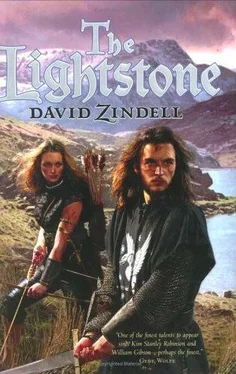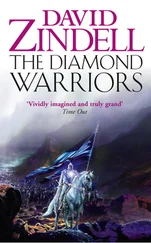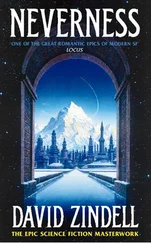David Zindell - The Lightstone
Здесь есть возможность читать онлайн «David Zindell - The Lightstone» — ознакомительный отрывок электронной книги совершенно бесплатно, а после прочтения отрывка купить полную версию. В некоторых случаях можно слушать аудио, скачать через торрент в формате fb2 и присутствует краткое содержание. Жанр: Фэнтези, на английском языке. Описание произведения, (предисловие) а так же отзывы посетителей доступны на портале библиотеки ЛибКат.
- Название:The Lightstone
- Автор:
- Жанр:
- Год:неизвестен
- ISBN:нет данных
- Рейтинг книги:5 / 5. Голосов: 1
-
Избранное:Добавить в избранное
- Отзывы:
-
Ваша оценка:
- 100
- 1
- 2
- 3
- 4
- 5
The Lightstone: краткое содержание, описание и аннотация
Предлагаем к чтению аннотацию, описание, краткое содержание или предисловие (зависит от того, что написал сам автор книги «The Lightstone»). Если вы не нашли необходимую информацию о книге — напишите в комментариях, мы постараемся отыскать её.
The Lightstone — читать онлайн ознакомительный отрывок
Ниже представлен текст книги, разбитый по страницам. Система сохранения места последней прочитанной страницы, позволяет с удобством читать онлайн бесплатно книгу «The Lightstone», без необходимости каждый раз заново искать на чём Вы остановились. Поставьте закладку, и сможете в любой момент перейти на страницу, на которой закончили чтение.
Интервал:
Закладка:
'It is night,' Kane said to us as we made our toward the noise of a larger street ahead of us. 'In this accursed city, always night.'
Daj was little help to us here. Some days ago, he said, he had made his way up the stairs, even as we just had, only to be captured very near this district.
'Lord Morjin's spies,' he said, 'saw the mark and captured me.'
To cover this foul mark inked into his forehead, Master Juwain had rigged a length of cloth around his head. It looked, Kane told us, something like the flowing kaftafs worn by the tribesmen of the Red Desert.
I worried how well Daj's disguise would hold up. I worried about Ymiru, as well. It was bad enough that he had to go forth dressed as a Saryak. Would his missing arm, I wondered, attract even more attention his way?
In this matter, at least, we had little to fear. Soon we reached a street where many people were about. And many of them, I saw, were veterans of Morjin's conquests.
Quite a few of those not dressed in his livery, mostly the invalided and old, showed signs of service in faraway lands: they had scars upon their faces and arms – that is, if their arms and other limbs hadn't long since been hacked off. Other people – blacksmiths, potters, masons, carpenters, bakers, and especially the tattooed slaves
– bore the marks of Morjin's displeasure. The Red Dragon, as Daj told us, had settled upon mutilation as punishment for even minor offenses. As we made our way through the crowds behind rolling carts laden with iron ore, hay, water barrels and other supplies, we saw men and women with branded faces, notched ears and gouged-out eyes. Thieves who hadn't been given to the dragon lacked hands with which to cut others' purses. In no other city had I seen so many carved-up, burnt, tortured, unfortunate people. Ymiru, I thought, would attract no attention on account of his severed arm.
It reassured me as well that we passed several Saryaks hurrying past us. These very tall men were dressed as Ymiru in black robes whose cowls covered their faces.
They were girded with maces and curved swords; they served Morjin freely, for pay, as did other mercenaries whose appearance and dress led me to believe that their homelands were Sunguru and Uskudar – and even Surrapam, Delu and Alonia. Many Sami warriors, accoutered in leather armor as Atara, rode their steppe ponies boldly through the streets. Kane identified their tribes as Zayak, Marituk and western Urtuk, all of whom were said to have made alliances with Sakai. As well, we passed a band of Blues with their battleaxes and companies of marching levies from Hesperu, Karabuk and Galda, which Morjin's Red Priests had conquered outright in his name.
It seemed that Morjin was gathering a great host under his banner and sheltering them here in this dark, impregnable city. If any of Argattha's residents looked our way, I hoped they would think that we were just a few more warriors come to sell our swords.
Daj explained to us that the various levels of the city were mostly devoted to differing activities. Thus on the seventh level were to be found Morjin's palace and throne room, many of Argattha's temples, and other chambers given over to matters of ceremony and state. There lived the Red Priests and nobles, while the higher artisans such as painters and sculptors had shops on the sixth level, with weavers, clothmakers and dryers on the fifth, and so on down to the second level, the city's largest where Morjin's armies were quartered in dim, cramped barracks and the blacksmiths and armorers labored over their forges preparing for war.
We saw signs of the coming cataclysm all around us. Carts stacked with yew and horn, bound for the bowmakers' shops, rolled past us. Other carts laden with sheaves of arrows moved the other way. Slaughterhouses laying in pork for long campaigns shook with the squeals of pigs having their throats cut; their blood flowed out into the streets' gutters, there to be drunk by the scurrying rats or the clouds of flies that plagued Argattha.
From smithies came the constant hammering of steel as men beat mauls against white-hot metal and made spearheads, swords, maces, arrowheads, helmets, shields and suits of mail. From the many forges billowed a thick smoke that choked the streets. Although numerous air shafts opened like chimneys upon ironworks and dank corridors, they were too few to carry away the fumes and stinks of the city.
The foul mixture of smoke, rotting blood and fear was the smell of Argattha, and I worried that it would cling not just to my clothes and hair but to my soul.
And how much worse, I thought, was the assault of this dreadful place on those who were forced or had chosen to dwell here. Mercenaries scur ried like rats themselves through the dirty streets. Mole-like merchants spent their years in little shops no better than pits and in scooped-out apartments that were worse. To the crack of whips, slaves dug new passages out of solid rock, and in long lines bore boulders and other debris out of Argattha's tunnels. They reminded me of ants more than men. Men and women, I thought, were not made to live so. We were noble beings who had come from far away to make a better world than this. We should have roses and starlight and hopes swelling like the Poru in flood. We should have great, soaring cities like Alundil and forests like the Lokilani's magical wood. A true king, my father once told me, turned all his thoughts and actions toward fulfilling the dreams of his people. In the end, he became their servant. But Morjin had bent the will of his subjects toward serving his dark design. They were a twisted people, bearing marks of woe upon their bodies and stunted in their souls.
I thought that if I couldn't soon lay my hands upon the Lightstone and escape from this city, the sufferings of these thousands of tortured men, women and children would drive me mad. And escape, it seemed, was near. After stopping a broken, old women to ask directions, we found our way onto one of this level's boulevards. This great bore through tne mountain's basalt, lit with oil lamps and lined with shops, ran almost straight from the Gashur Gate in the east face of Skartaru to the Vodya Gate in the west. It intersected another similar boulevard connecting the Lokir Gate and the Zun Gate, long since closed. Gashur, Lokir Vodya and Zun – four of the great Galadin who had joined Angra Mainyu's rebellion against the angelic hosts and had been imprisoned with him on the world of Damoom. Their names were reminders of why we had come to Argattha – and why we co uldn't just flee out of the city's gates.
And so we turned northeast toward the Zun Gate, as the old woman had advised us.
The city's great central stairs, she had said, opened onto the boulevard only a quarter mile farther along. We passed bakeries, taverns and mess halls carved out of solid rock. The smells of hot bread, beer and roasted chicken mingled with the reek of sewage and the dung that the gong farmers hauled out of the city in wicker baskets.
Although it had been a long time since our last meal and we were fairly starving, we couldn't quite bring ourselves to stop and eat. But we must, as Maram pointed out, find something to drink. Atara had been carrying our water, and we had not the slightest drop to wet our parched throats.
'I'm thirsty,' Maram complained as we made our way against the jostling crowds in the street. He walked beside me, with Daj behind him and Kane and Liijana following protectively. 'I don't like to think that I'd drink the water in this filthy place, but i suppose I must.'
Although time was pressing us like a great boulder set rolling down a mountain, we decided to duck into a waterseller's shop and buy a few glasses of this precious liquid. But after we had drunk our fill of the greasy-seeming water, which tasted faintly of iron and blood, we found that we couldn't leave.
Читать дальшеИнтервал:
Закладка:
Похожие книги на «The Lightstone»
Представляем Вашему вниманию похожие книги на «The Lightstone» списком для выбора. Мы отобрали схожую по названию и смыслу литературу в надежде предоставить читателям больше вариантов отыскать новые, интересные, ещё непрочитанные произведения.
Обсуждение, отзывы о книге «The Lightstone» и просто собственные мнения читателей. Оставьте ваши комментарии, напишите, что Вы думаете о произведении, его смысле или главных героях. Укажите что конкретно понравилось, а что нет, и почему Вы так считаете.










